Welcome dear friends of Hive Book Club, in this opportunity I will give you a brief review of one of the books of the great writer, Gabriel García Márquez entitled: One Hundred Years of Solitude. In addition, I will give you my own conclusions and opinion about it, I hope you enjoy reading it, especially for those who love history and I invite you to stay until the end. Your friend and servant @ava2702 bids you farewell.
This book is called Cien Años de Soledad (One Hundred Years of Solitude), a masterpiece novel by Colombian writer Gabriel García Márquez, written in 1967, tells the story of the Buendía family and their descendants, who, crossing the mountains, along with other families, settle in a deserted place in the Caribbean, to found the town of Macondo. The patriarch's name was José Arcadio Buendía, his wife, Úrsula Iguarán and his three children, the eldest José Arcadio, the middle one, Aureliano and the last one, Amaranda. From these three children, four generations of Buendía will be born, who throughout history will procreate among themselves, with some exceptions. These generations of Buendia, lasted a little more than a hundred years, where the town of Macondo, witnessed the adventures and misfortunes, successes and failures, joys and sorrows of a whole lineage of lonely individuals, who lived and suffered from loneliness, not that which is by absence, because they had company, which allowed the creation of four generations, but of that kind of loneliness that cannot be filled by anyone, but by themselves, a loneliness that bordered almost on vocation, which in the end also lived and suffered until his last moments the final descendant of the lineage, Aureliano Babilonia.
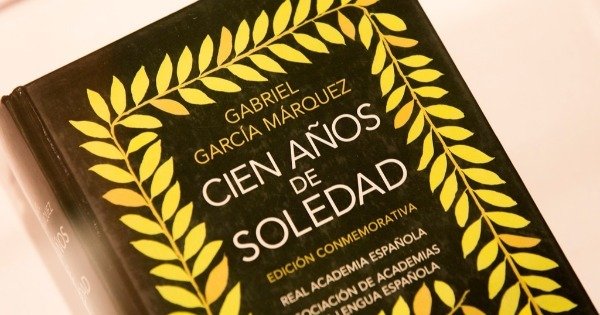
José Arcadio Buendía is a fictional character in the novel One Hundred Years of Solitude, he is the patriarch and founder of Macondo, who at 19 years old marries his cousin Úrsula Iguarán and, despite being afraid of having a child with a pig's tail because of the family closeness, they had three children: José Arcadio, Colonel Aureliano Buendía and Amaranta, besides adopting Rebeca. José Arcadio Buendía leaves with his family the old town where they lived as a result of the harassment of the ghost of Prudencio Aguilar, whom he murders after he offended him by shouting in a henhouse that he wished his rooster would do "the favor" to his wife, since, people suspected that José Arcadio and Úrsula had not had intimate relations after their marriage due to a lack of virility or impotence on the part of José Arcadio Buendía, who has a strong character, an immovable will, great physical strength, extravagant illusions, great interest in science, mechanics and alchemy, very idealistic and adventurous; from the beginning of the foundation of Macondo, he was an enterprising man, who played the role of leader and organizer of houses, in addition to possessing an enormous imagination that always went further than the ingenuity of nature, and even beyond the miracle and magic, José Arcadio Buendía, is a dual being, that is, that has contained in its characteristics, opposite ways of being, and throughout the novel, each of them intervene in different mental states of the character.
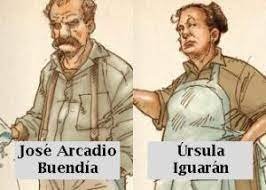
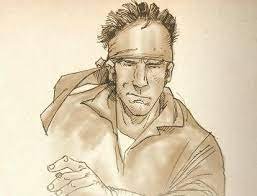
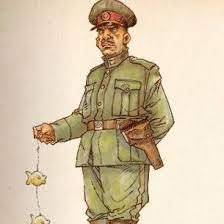
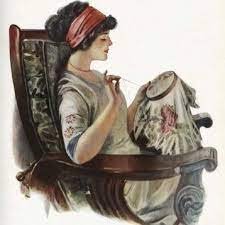
The following characteristics are opposed: Actor, enterprising, adventurous / Reader, solitary, isolated: "For several months he strove to prove the correctness of his conjectures. He explored the region inch by inch, including the bottom of the river, dragging the two iron ingots and reciting aloud the incantation of Melquiades". Imagination and Creativity / Strength, José Arcadio Buendía spent long rainy months locked up in a small room he built at the back of the house so that no one would disturb his experiments. He was bewitched for several days, repeating to himself, in a low voice, a string of astonishing conjectures, without giving credit to his own understanding". In the last years of his life, José Arcadio Buendía, ended up totally thrown into his imagination, remaining completely mad, far from reality, from the practical world, submerged in his fantasies and imaginations in the shade of the chestnut tree. He engaged in deep conversations with the late Prudencio Aguilar, until the day he died, a day recalled in the novel in a beautiful way, as a tribute to the man who had done so much for Macondo: "Then they entered José Arcadio Buendía's room, shook him with all their might, shouted in his ear, put a mirror in front of his nostrils, but could not wake him up. A little later, when the carpenter was taking the measurements for the coffin, they saw through the window that a drizzle of tiny yellow flowers was falling". The most important scene of the main character is when: The children (children of José Arcadio Buendía) were to remember for the rest of their lives, the august solemnity with which their father sat at the head of the table, trembling with fever, devastated by the prolonged vigil and by the festering of his imagination, and revealed to them his discovery: The earth is round like an orange", where Úrsula lost her patience. "If you must go mad, go mad yourself," she shouted, "but don't try to instill your gypsy ideas in the children. José Arcadio Buendía, impassive, did not allow himself to be intimidated by the desperation of his wife, who in a fit of rage smashed his astrolabe against the floor. Therefore, this scene owes its importance to the fact that José Arcadio Buendía did not remove the blindfold from his eyes until the exact moment when his wife demanded that he put his feet on the ground and take care of his children, who were neglected and left to fend for themselves, In this scene we can see the significant change that the main character had, because, after giving attention to his children, he taught them to read and write, as well as to learn how to do accounts and, it shows the role he plays as an exemplary father, which is a life lesson for many.
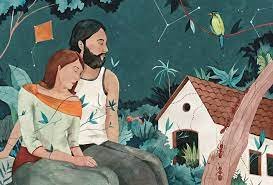
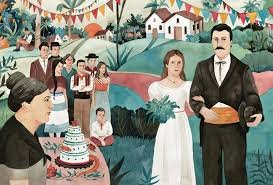
The author, Gabriel García Márquez, throughout the work uses abundant literary resources, which exposes the great richness of the lexicon and grammar in Spanish language, which, in his novel "One Hundred Years of Solitude" shows us a faithful reflection of the social, cultural and economic situations of Colombia (his native country), during the period of time in which the work is developed. This reflection is very clear in the non-literacy of the characters and in their eagerness to learn more and more, as well as in the war conflicts that take place, in which it is made clear that in this country as in those around it, the Army is an Independent Power of the State and is not subordinated to it, so there is no separation of the three powers existing in a Democracy as we know it, giving rise to a Universal and Free Democracy in quotation marks. The story of this novel is intense, it contains magic and the exaggeration of reality, fantasy, violence, feelings and many curiosities. Perhaps, the loneliness experienced by its characters, due to the climate of violence in which the story takes place, is softened by that magical atmosphere, full of premonitions, superstitions and fantastic passages, that way of mixing realism and fantasy is intoxicating. It is amazing how the author weaves the story of so many characters, characters that are strange at times, unusual situations in many cases, harsh reality at times of history, characters of a family, the Buendía family, founders of Macondo. The character of Ursula is incredible, that strong figure, full of reason and love, that woman and mother always watching over all her family.
Translate by DeepL.com
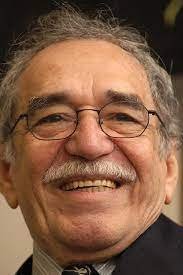
Congratulations @ava2702! You have completed the following achievement on the Hive blockchain and have been rewarded with new badge(s) :
Your next target is to reach 300 upvotes.
You can view your badges on your board and compare yourself to others in the Ranking
If you no longer want to receive notifications, reply to this comment with the word
STOPCheck out the last post from @hivebuzz: